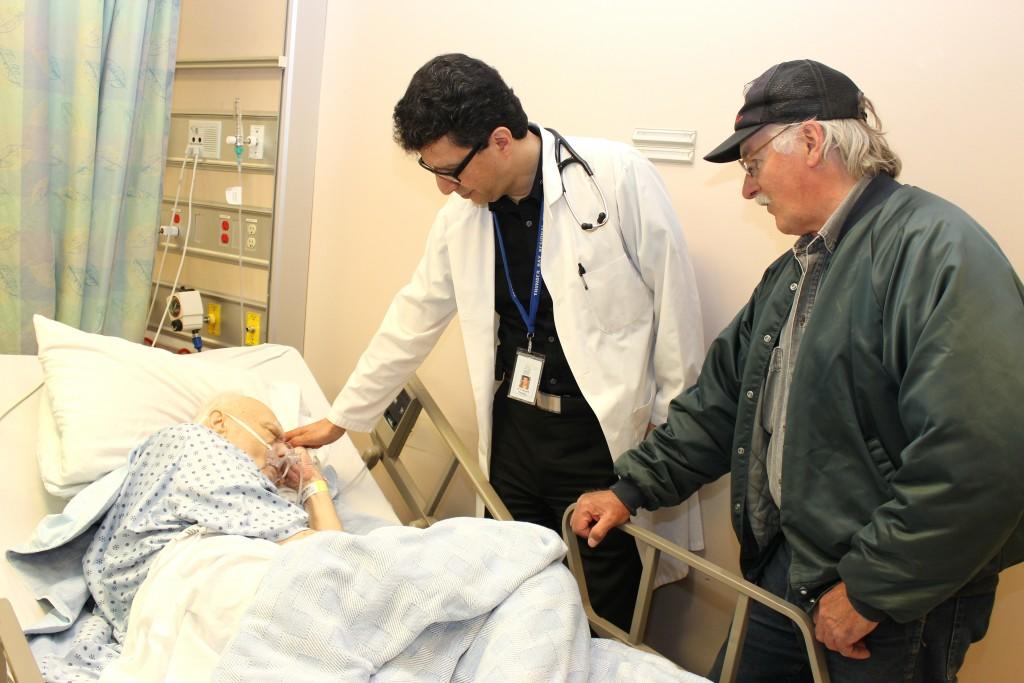Champions of Patient and Family Centred Care
by Maryanne Matthews
 Patient and Family Centred Care is all about the collaborative partnership between patients, families and their care team. Above, Dr. Parvis Masoudi, PFCC Leadership Council Physician Champion, consults with a patient and his son to determine the best possible care plan.
Patient and Family Centred Care is all about the collaborative partnership between patients, families and their care team. Above, Dr. Parvis Masoudi, PFCC Leadership Council Physician Champion, consults with a patient and his son to determine the best possible care plan. Patient and Family Centred Care (PFCC) is the philosophy that guides us. A relatively new approach to health care, PFCC puts patients and families at the centre of everything we do and involves them in medical decisions like never before.
We’ve been practicing PFCC for the past six years, and the Strategic Plan 2020 displays our continued commitment to grow and embed the PFCC philosophy at our Health Sciences Centre.
“PFCC is not something that just happens,” says Dr. Rhonda Crocker Ellacott, Executive Vice President, Patient Services and Chief Nursing Executive. “It’s about making an intentional commitment to a journey with a richer appreciation of what it means to work in collaborative partnership with patients and families. It changes the way you do business to shape a better organization.”
Our PFCC Leadership Council provides corporate leadership to advance Patient and Family Centred Care and ensures patient and families are at the centre of everything we do. The council is comprised of leadership representatives from all areas of the hospital, and works to create sustainable systems, structures and process for Patient and Family Centred Care. Two physicians also sit on the council to provide their valuable perspective. With such commitment and passion for PFCC, they have become “Physician Champions” of PFCC throughout the organization.
“In my opinion, PFCC has proven to be a major asset to our organization,” said Dr. Parvis Masoudi, PFCC Leadership Council Physician Champion. “As a physician, I feel PFCC has a positive impact on physicians’ insight into our patients’ care. “As physicians, we really work together with the patient and their families. With their valuable feedback, we can adjust the care we provide based on their needs. It has done wonders to improve patient outcomes and satisfaction rates, and helps reduce length of stay. Enhancing patient-physician communication not only greatly benefits the patient; it has also improved physician satisfaction as well.”
“Although we are already recognized leaders in PFCC, we now view it as an ongoing commitment to better the overall experience of care,” said Dr. Crocker Ellacott. “It’s a journey, not a destination. As we continue on this journey, I am sure we will find more success for our organization, but most importantly, improvements that will be felt by our patients and their families.”